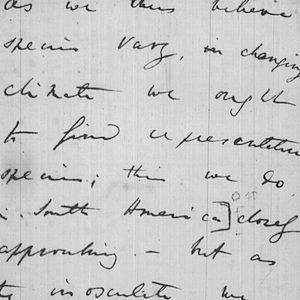-
-
Step-by-step course guide
-
What you will learn in this course
-
About the course: David Kinney & Simon DeDeo
-
Introducing the course Teaching Assistant
-
Join the discussion
-
-
-
Introduction to Humanities Analytics
-
-
-
-
Analyzing "Excellence" in the Humanities
-
-
-
-
-
-
Case Study: Capitalism & Democracy
-
Chapter 5 part 1 Overview
-
The Marriage of Capitalism & Democracy part 1
-
Test Your Knowledge part 1
-
Test Your Knowledge part 1: Explanations
-
Chapter 5 part 2 Overview
-
The Marriage of Capitalism & Democracy part 2
-
Test Your Knowledge part 2
-
Test Your Knowledge part 2: Explanations
-
Assignment: Case Study: Capitalism & Democracy
-
-
-
-
-
Measurement & Operationalization
-
-
-
A Philosophical Approach to Probability
-
-
-
Guest Lecture: Marco Buongiorno Nardelli
-
-
-
-
-
Guest Lecture: Nan Z. Da
-
-
-
Wrap-Up
-
What's Next
-
5.1 Questions » Test Your Knowledge: Explanations
Q1. Which of the following is not a typical benefit of asking good research question?
A. It helps organize research investigations.
B. It demonstrates the potential power of a particular computational or quantitative technique.
C. It directs the researcher and a the reader's attention towards a particular problem or area of interest.
D. It keeps everyone on board.
Correct Answer: (B) While it is true that some research projects might demonstrate the power of a given computational or quantitative technique, research questions themselves rarely do this. In fact, as is covered in the lecture, research questions of the form "Can a computer do X?", are often sub-optimal in terms of the kinds of projects that they end up producing. By contrast, options A, C, and D are all listed as important effects of asking a good research question.
Q2. Which of the following is almost always a feature of a good research question in Humanities Analytics?
A. It is a question that many people will believe they know the correct answer to.
B. No matter how it is answered, that answer will be interesting.
C. It is a question that has not been asked before in any published research.
D. It concerns very well-known works in literature or important periods in history.
Correct Answer: (B) Typically, a good research question will be one that the researcher does not know the answer to before they investigate. So, it is a good feature of such a question that any of the possible answers that might be generated by empirical research are interesting. This explanation shows why option A is not correct; good research questions typically do not have obvious answers. Option C is not correct because one can ask the same question as a previous study but investigate it using different methodology, thereby yeilding novel results. Finally, option D is incorrect since many (but not all!) interesting projects concern more obscure texts or periods in history.
Q3. Why is it typically a bad idea to preface a research question with a long, in-depth description of the research context in which the question is asked?
A. It makes it difficult to use the research question in a lecture.
B. It increases the risk of making a false statement.
C. It limits the extent to which the research question itself is interesting to an expert in the domain of inquiry in which the question is posed.
D. It can hinder drawing connections with collaborators in other fields, thereby preventing everyone from getting on board.
Correct Answer: (D) Long discussions of the disciplinary context in which a research question is situated are often needed later on in a project, in order to contextualize the relevance of results for a particular field. However, when they are needed in order to even understand a research question itself, they run the risk of placing undue cognitive load on potential collaborators from in other fields, and preventing inter-disciplinary collaboration. Option A is incorrect; as stated in the video, discussions of the context of a research question can often be a good way to start a lecture. Option B may not be correct if one is an expert in the domain in which the research question is being asked. Option C is also not correct; more in-depth context should not limit the interest of a domain expert.
